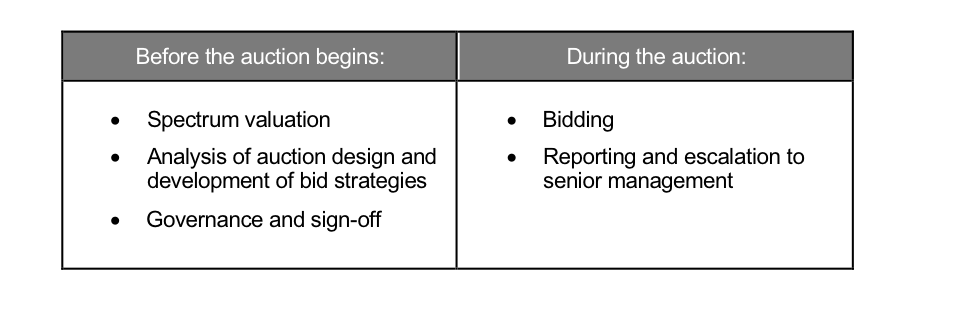Wireless spectrum is a limited commodity. Since the early 1990s national governments have monetised this by making telecommunication companies purchase licenses, typically valid for 15-20 years, via an auction process. The auction terms set by governments have political as well as financial goals, generally designed so that three or four winners receive licences. Licenses therefore often define industry structure over several life-cycles of mobile technology.
With each new generation of mobile technology (2G, 3G, 4G and now 5G) additional frequencies are allocated for mobile use resulting in a new series of auctions around the world. Securing spectrum is essential for any operator, as without it they cannot offer the latest generation of services and it provides additional capacity for existing ones. Auctions are therefore intensely fought and bids may reach many billions of euros.
For bidders, acquiring the right amount of spectrum at the best price is a delicate and complex operation:

These tasks required input from people with different skills (finance, technology, policy, IT, security etc.). To complicate matters, the processes do not follow in a linear manner, but are often inter-dependent and occur in parallel with frequent iteration.
